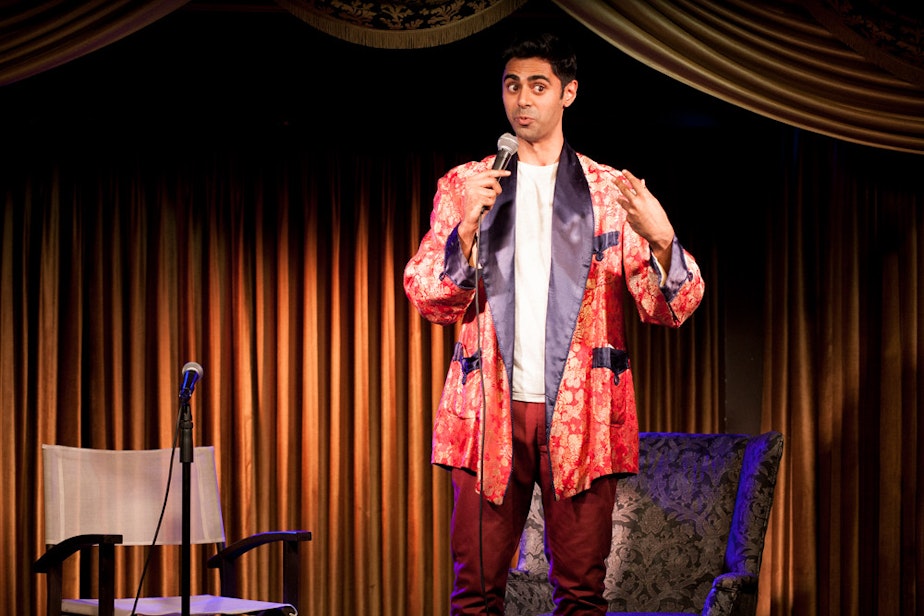Comedian Hasan Minhaj admits he made up some of his material. How do Washington comics react?

In his 2022 Netflix special, "Hasan Minhaj: The King’s Jester," Minhaj tells the story of brother Eric. The comedian, who is Indian and Muslim American, says a muscle-bound white guy showed up to his childhood mosque one day and insinuated himself with the community.
But “Brother Eric” had a hidden motive — get young Muslim kids to admit to being terrorism-curious. Minhaj says he sussed out the federal agent pretty quickly and decided to play a prank on Eric. The cops show up and Minhaj ends up with his head on the hood of a car.
Years later, the story goes, the comedian and his dad are watching TV and they see a story about “Brother Eric,” confirming he was in fact an FBI informant working undercover in California mosques. It sounds like a familiar chapter in the hyper-surveillance of Muslims in post-9/11 America. But it is also a comedy routine, performed to get laughs. And as it turns out, none of it actually happened to Hasan Minhaj himself.
A New Yorker exposé published recently poured cold water on several stories in Minhaj's standup. The article clarified that the real FBI informant, Craig Monteilh, didn’t work in Sacramento where Minhaj grew up. Minhaj also admitted to greatly exaggerating details about his daughter supposedly being exposed to a white powder the family thought was anthrax.
He also admitted that he made up a few other tales centering on his first-generation immigrant experience and being a Muslim and Indian comic who takes on tough political issues in his material.
So, what are we to make of all this? Minhaj told the New Yorker that his work gets to important “emotional truth” and added, “the punchline is worth the fictionalized premise.”
Soundside spoke with three folks who know a lot about a punchline and how to tell stories:
Rohini Jayanthi started her comedy career with the Tasveer’s Desi Girl Comedy Project and has been performing all over since then. She’s been featured in The Stranger and Seattle Gay News and Indianaspora.
Sam Miller is a comedian from Olympia, Washington. He's appeared on the nationally syndicated "Bob and Tom" radio show and he's headlined at The Laugh Factory in Chicago.
Rita Meher is the co-founder and executive director of Tasveer, the largest South Asian Film Festival in the U.S.
Jayanthi said she doesn't have a problem with stretching the truth to the degree that Minhaj has in his stand up, but she said "where it gets tricky is that he did not admit to which parts were not true when asked about it while he was not performing. So I think that part, that part makes this a lot more murky."
Meher took a much stronger stance.
"I have been organizing storytelling for 18 plus years," she said. "And when we have a storyteller, and they're telling their story on the stage as an audience, we get so invested emotionally in the in the content of their story."
Miller said that for him, it's not about the exaggerations. He said he took offense to the parts of the story that got people harassed.
"If it led to that woman being harassed over something that he fabricated, that's a definite line for me," Miller said.


